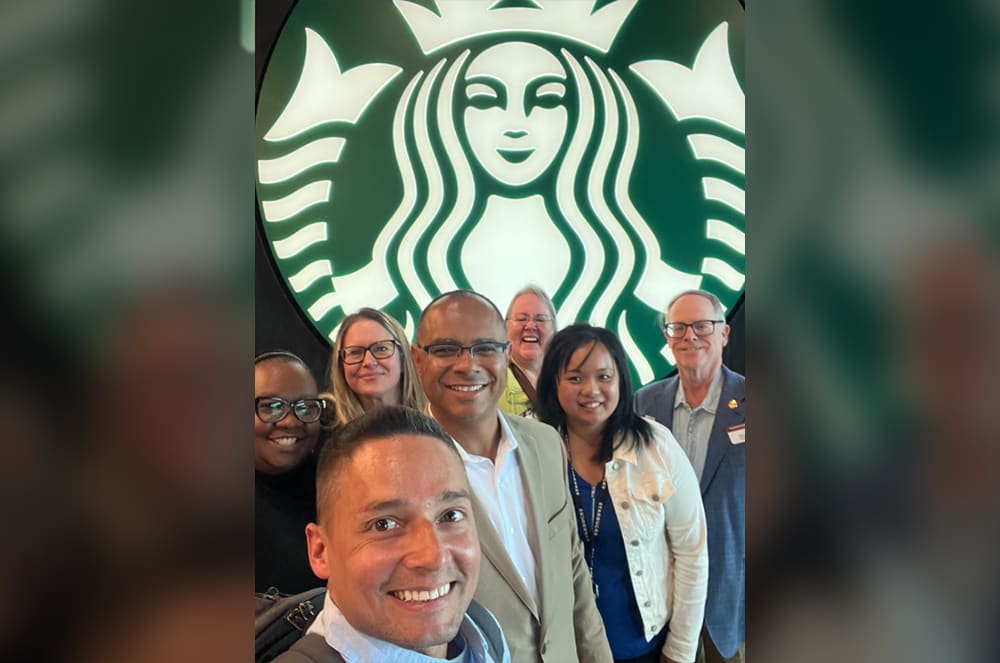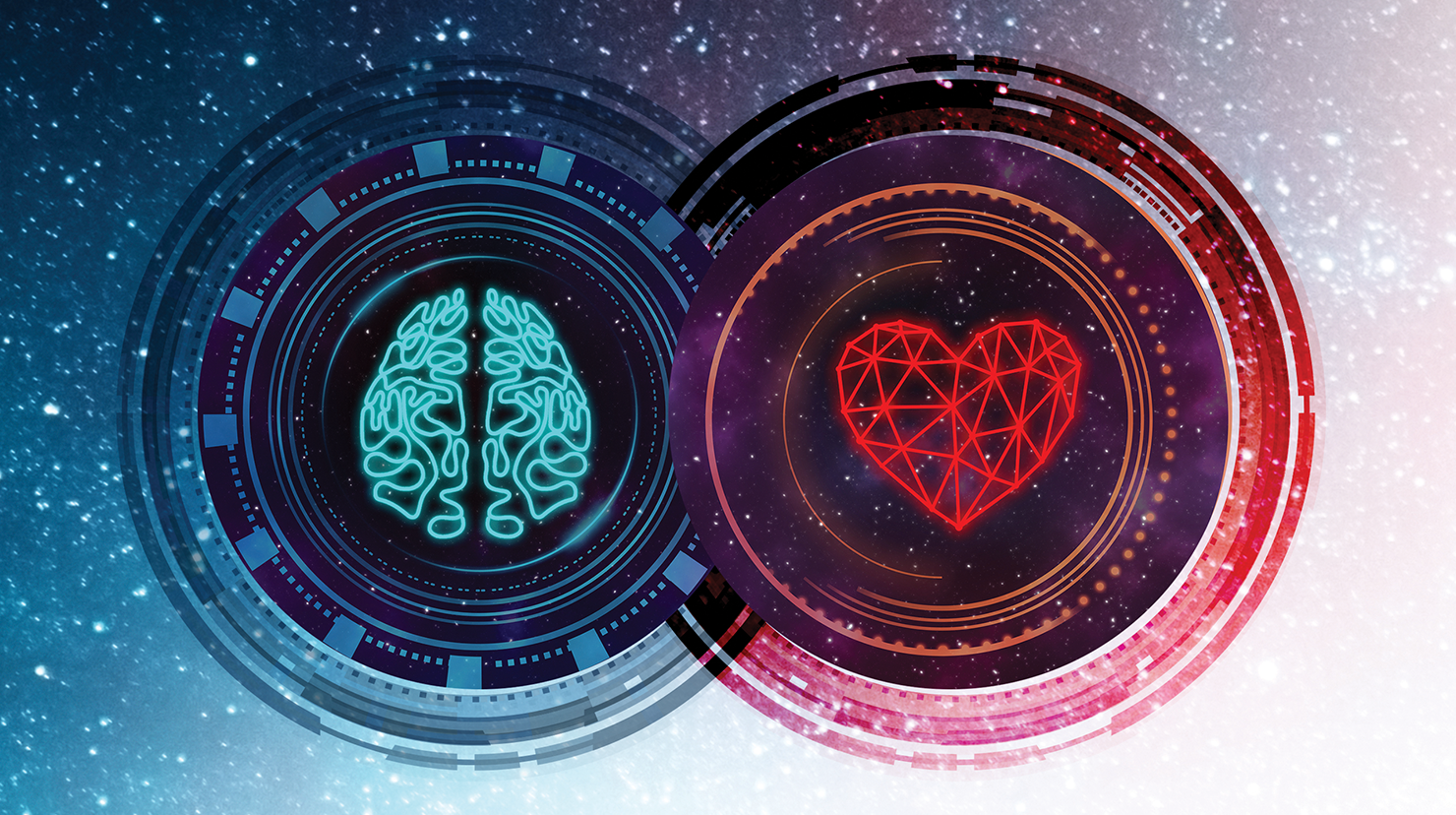
As a teenaged camp counselor in training, I once faced a daunting challenge: Pacify a group of my fellow trainees pretending to be crying children. I tried asking them what was wrong. I offered them entertaining activities. Then, at my wits’ end, I started “crying” too. To my shock, everyone immediately smiled, and the group, including the trainer, applauded. Turns out I had stumbled upon a textbook example of social intelligence.
Put simply, social intelligence is another term for “street smarts,” the ability to read and respond effectively to a given social situation. As psychologist Edward Lee Thorndike understood when he coined the term more than a century ago, social intelligence is that special kind of know-how it takes to solve the equation of human relationships. It allows people to be effective leaders, parents, and friends. In fact, it is key in pretty much any human encounter you can imagine.
Say you move to a new area for a job. Are your neighbors friendly and open, or do they tend to keep to themselves? Do your coworkers joke around during the day, or is the office environment more serious and work-focused? Does your boss have an open-door policy? We all know someone hired to lead a team who immediately put their personal stamp on the office without first exploring the corporate culture. How effective were they in getting buy-in from employees, or resolving conflict?
“Social intelligence and the social skills that make it up are critical for success in relationships and many jobs,” writes Ronald E. Riggio, Ph.D., a professor of leadership and organizational psychology at Claremont McKenna College in Claremont, California, in a Psychology Today article. Consider the benefits of social intelligence in your own life. It might just help you figure out the right time and place to ask for a raise, make a new friend, and so much more.
Social and Emotional Intelligence
Social intelligence is closely related to emotional intelligence, the ability to understand and manage our own emotions and those of others. Psychologist Howard Gardner’s theory of multiple intelligences, which suggests there are eight types of intelligences, helped set the basis for the concept of emotional intelligence. Prior to that time, people tended to think that only IQ, or cognitive ability, was an important marker of future success.
“Emotional intelligence is predominantly about improving internal states,” notes Tampa, Florida-based Arman N. Chowdhury on his blog ArmaniTalks. In contrast to understanding and expressing emotions, he explains, “social intelligence is predominantly about improving external states.”
That is to say, it’s everything from being able to understand someone’s facial expression to knowing what Chowdhury calls “the etiquette behind social skills,” including how to engage in conversation, share jokes, empathize, and generally interact effectively with people. Naturally, the two are inextricably linked. If your internal state is anger, or misery, for example, it’s a lot harder to be comfortable with others.
 Monica Meas (in the white jacket), the Club President of Starbucks ‘Coffee and Toast’ Masters Club, with her club officers and First Vice President Stefano McGhee, DTM (in the tan jacket)
Monica Meas (in the white jacket), the Club President of Starbucks ‘Coffee and Toast’ Masters Club, with her club officers and First Vice President Stefano McGhee, DTM (in the tan jacket)
Think of successful psychotherapists, counselors, politicians, or members of the clergy, and you will find that many of them have true social intelligence. The best of these professionals have an uncanny ability to “read the room” by taking the emotional temperature of a person or group and understanding how best to frame and communicate their message.
How to Boost Social Intelligence
Do you tend to find yourself on the edge of groups, unsure how to fit in? Are you constantly one step behind others in social situations? Some people learn how to “work the room” in childhood. But for many of us, becoming a people person takes practice. Here are some ways to get started:
- Pay attention to the behavior of others. This means not only observing social cues—things as simple as whether someone shakes hands or hugs, speaks formally or more colloquially, or uses humor to good effect—but also practicing active listening. What are they saying, and equally importantly, what are they saying between the lines? You might ask the advice of an insider to find out.
- Pay attention to your own behavior. What facial expressions, gestures, and tone of voice do you use when you’re excited or frustrated? Could people interpret them as signs of anger? Ask those close to you for feedback.
- Practice, practice, practice. This is particularly important with respect to small talk. During the COVID lockdown, people who regularly shared a few words with cashiers or crossing guards reported that they missed having opportunities to briefly socialize with others. Even if you’re uncomfortable at first, make a point of starting, or returning to, the habit.
- Learn to manage your emotions. Remember the social intelligence/emotional intelligence link. For a multitude of reasons, your default response to a social situation may be to push too hard—that is, to overwhelm new friends or colleagues with attention or information. But consider: Will the person you’re facing appreciate that response?
“Socially intelligent people have an abundance mindset toward others,” writes Chowdhury. This prevents them from behaving in an overly clingy or needy manner. “When a person dissolves clinginess and neediness,” he asserts, “the entire world wins.” - Try laughing at yourself. When we don’t take ourselves so seriously, we exude a degree of positivity and brightness. While that may not be your natural style, it can be a good habit of mind to cultivate. In general, humor can be a great way to lower social barriers. Just try to refrain from put-downs or other jokes until you get a sense of the group dynamic.
- Join an improv class. Improvisational comedy is not really about being funny. It’s about active listening and collaboration. Plus, it’s fun!
- Smile! If laughing isn’t called for, a simple smile can make others feel at ease.
Remember, we all miss social cues, particularly in unfamiliar situations, such as with a new friend’s family or in a different cultural context. Don’t sweat it. Just sit back, tuck the lesson into your toolbox and move on.
“Toastmasters didn’t just teach me how to speak. It gave me the tools to connect, inspire, and thrive.”
—Monica MeasBeware the Trap!
It’s one thing to pick up a subtle accent when you’re vacationing in a different area. But you might know people-pleasers who turn themselves inside out to fit in with a prospective mate or boss. We don’t want to use our social intelligence skills to the point at which we lose our personalities and authenticity altogether.
There is a fine line between picking up and correctly responding to social cues and being true to ourselves. Do you feel that you dress or behave a certain way to please someone else rather than yourself? In the office, that might make sense. In a relationship, however, it may or may not. Do you find yourself saying or doing things that you don’t agree with to satisfy others? Again, whether or not this is a smart idea depends on what these things are and what kind of situation you’re in. Changing your behavior or opinions may be red flags that you are losing yourself in order to gain a relationship. Try asking: Am I uncomfortable with who I am when I’m around certain people? Or, talk to a trusted friend or counselor for a second opinion.
Social Intelligence and Toastmasters
Toastmasters is a perfect place to master social intelligence, notes Riggio, the professor in California. Think about it: The opportunities to speak, observe, and collaborate at weekly meetings and occasional conferences are endless.
Monica Meas says the Toastmasters experience is hugely impactful.“Toastmasters didn’t just teach me how to speak,” says the President of the Starbucks ‘Coffee and Toast’ Masters Club. “It gave me the tools to connect, inspire, and thrive.” These tools include an emphasis on everything from interpersonal relationships to evaluations.
“I began to see social skills, communication, and emotional intelligence as ingredients in the perfect cup of social intelligence,” explains Meas, who regularly speaks on social intelligence in Seattle, Washington. “When they’re in harmony, they create something transformative. Toastmasters gave me the space to test, refine, and finally master that blend.
“And for that, I will always hold it as the perfect pot where my social intelligence was brewed to perfection.”
Caren S. Neile, PhD teaches, writes, and stockpiles social capital in Boca Raton, Florida. Visit her at carenneile.com
Related Articles

Personal Growth
Emotional Intelligence: The Other Kind Of Smart

Cross-Cultural Communication



 Previous
Previous

 Previous Article
Previous Article